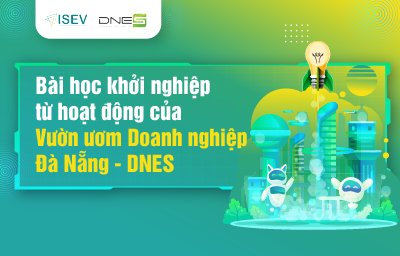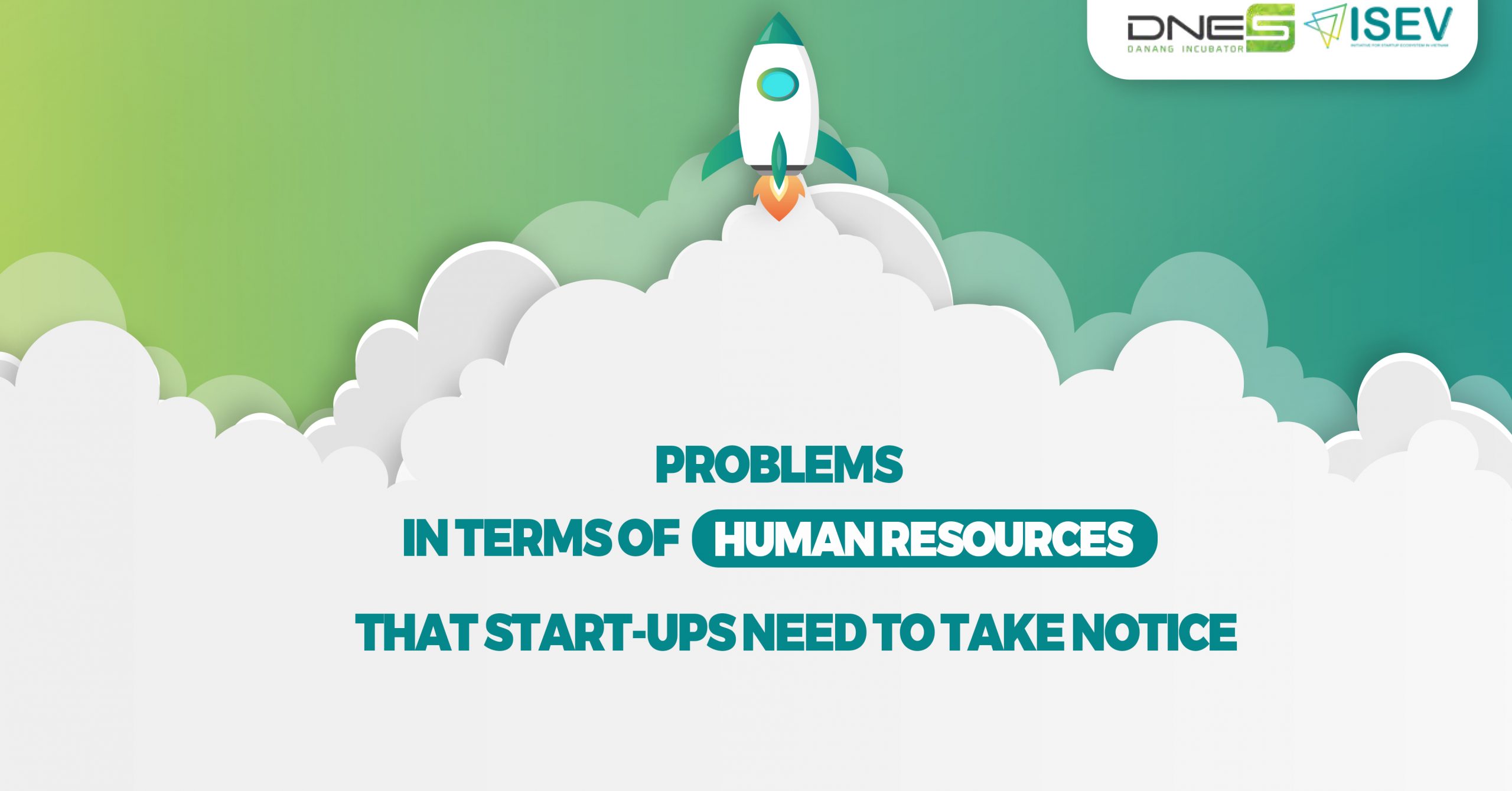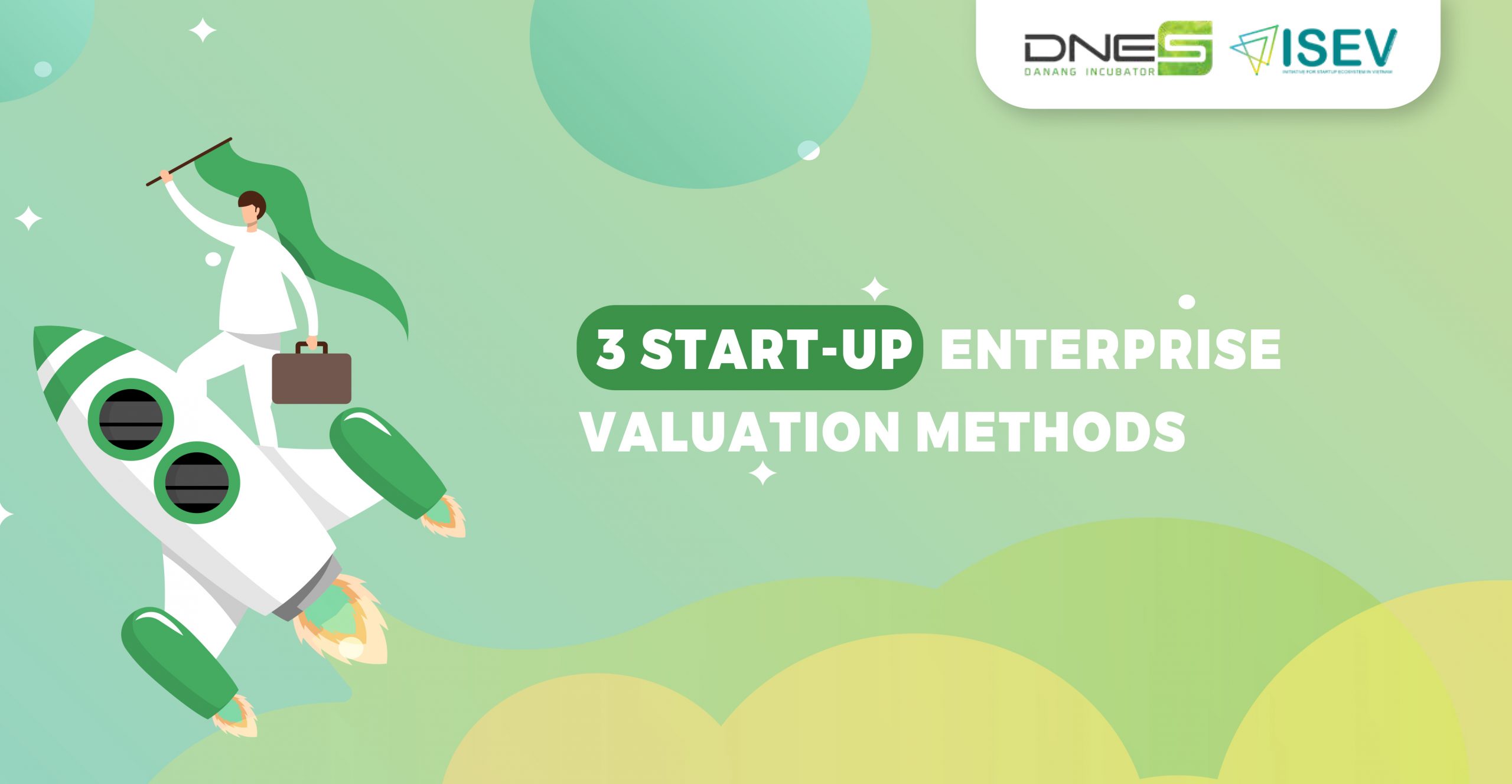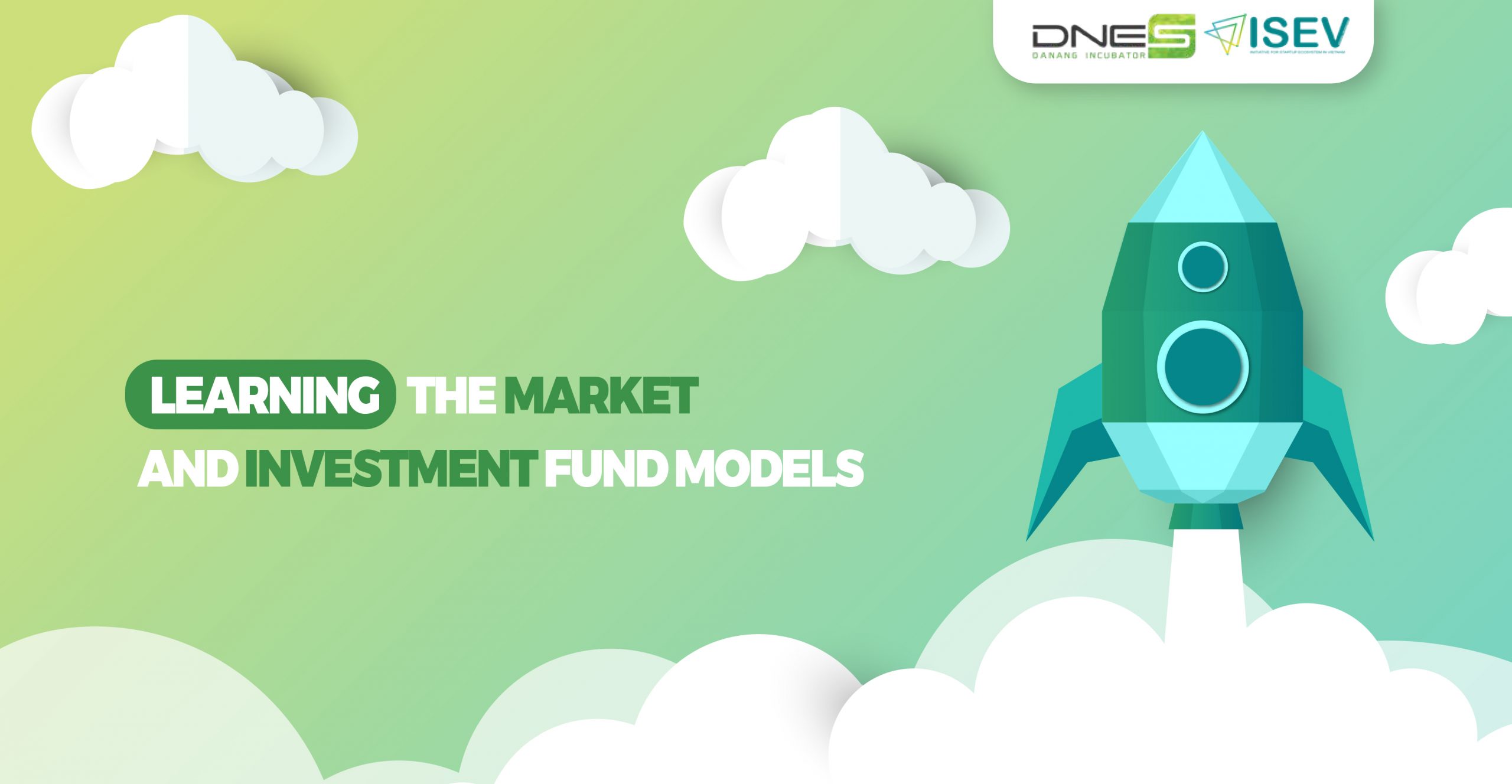Start-up experiences from the story of Danang Business Incubator (DNES)
Founded and officially come into operation since January 2016, Danang Business Incubator (DNES) has experienced nearly 6 years of establishment and development. Started as a small-scale local incubator, so far DNES has affirmed itself and significantly broadened the scope of its operations. In an effort to give Start-up Support Units the broadest overview of how a business incubator operates, thereby assisting their own withdrawing start-up experiences; this article tells the story of DNES along with the sincerest sharings from those who have made a success of the incubator like today’s.
I. A brief history of DNES and its motivation:
2016 was chosen by the Government as the year of "Start-up Nation" with the goal of promoting development and moving the national ecosystem forward. The most concrete action is the promulgation of project 844 "Supporting the national innovation startup ecosystem until 2025" by Prime Minister. In addition to that, with the advice of domestic and international experts, Da Nang city has formed an innovative startup ecosystem, which is young but full of potential. In order to promote its strengths and create its signature brandIn addition to that, the city continues to research and test models and approaches suitable to its conditions.
Before 2015, Da Nang had almost no startup ecosystem, only a few small clubs and a few contests on startup ideas in universities, college in the city.
However, in just a short time, the situation of start-ups and startups in Da Nang has prospered significantly thanks to the determination of the Da Nang Startup Council and the People's Committee of Da Nang City, notably the establishment of Da Nang Business Incubator (DNES), along with a positive change in the community's opinion.
II. DNES’s Mission:
DNES is a Public-Private Partnership Business Incubator operating under the direction of sustainable development; with the goal of promoting the development of the innovative startup; positioning the DNES brand as an innovation center in the national and international startup community. The ultimate mission of DNES is to enhance enterprise capability through startup and innovation.
III. DNES’s Core Values:
DNES has always prioritized incubation, investment, and connection as its three core values, guiding the organization's future development.
The first core value is incubation, which involves discovering and incubating start-ups in order to build a new generation of founders with all of the essential qualities and exceptional talents. Founder Incubation Program, also known as FINC, enables founders to test product ideas, define business models, participate actively in training courses to advance their skills, and connect with other startup founders as well as start-up mentors and consultants, thereby helping founders be prepared to capture the target market. Over the journey of 11 batches, DNES has incubated more than 75 startup projects. Among these, some startup projects have successfully raised capital and keep expanding scale, bringing great value to the community after the incubation program. This became a significant motivation for DNES to promote the implementation of incubation programs and support services.
Start-up investment is the second core value that DNES strives for. Through FFI (known as Flying Fish Investment), DNES has constantly laid the foundations for capacity building in investment, venture capital, and venture capital management. Beyond assessing the potential of startup ideas, DNES believes that startups need to be supported and endorsed to turn their dream into reality. With this focus, DNES enables startups to develop products that are appropriate for market demands, effectively raise funds, and grow effectively to conquer customers and markets.
The third core value is connecting resources. The following difficulties exist: How can the innovation startup ecosystem attract and connect resources? How can we ensure the Incubator grows sustainably?
The foundation of DNES's network activities is the commitment to ensuring organizational diversity and connectivity among the startup ecosystem's various stakeholders, including: (i) capital sources (venture capitals, angel investors, private equity funds, sponsorship programs, big enterprises and corporations), (ii) start-up support organisations (incubators, accelerators, Information Technology Park, high schools, co-working spaces, venture builders), (iii) service providers (consulting, mentoring, training, software services, financial, legal, marketing communications and human resource provision), (iv) network (innovation start-up events and competitions), (v) talented pool (in universities, higher education institutions, international students). The Danang Startup Council (DSC), the university incubation model, and SURF – The annual Startup Exhibition and Conference.
IV. DNES’s Resources:
DNES, which is the first public-private partnership model in Vietnam, is a bridge that draws significant attention, support and connections from renowned organizations such as the Innovation Partnership Program between Vietnam and Finland (IPP); Mekong Business Initiative (MBI), Asian Development Bank and Australian Government; Swiss Entrepreneurship Program (Swiss EP); United Nations Development Program (UNDP); Program 844 chaired by Ministry of Science and Technology; Innovation Programs of the Embassies of Israel, Ireland, Finland, Australia.
When startups are incubated and assisted to successfully raise funds for ongoing development, the enthusiasm and efforts of both DNES Board of Directors and DNES's whole staff, as well as the brand "Innovation Hub by the Sea," are positioned. That is the value of the DNES: to inspire future innovation and strengthen the beliefs of startups, new entrepreneurs, and local governments.
V. DNES’s Operation Model:
DNES was founded and operated within the model of a public-private partnership, focusing on sustainability and fostering business growth through creativity and innovation startup, with a vision to become the first choice for individuals, start-ups, domestic and international support organizations.
1. Key Services and Main Activities:
DNES's main activities center on connecting and utilizing resources efficiently to assist startup incubation and investment. In terms of services, DNES offers four major ones, including: (1) selection and incubation through the FINC incubation program; (2) investment in businesses and quality projects; (3) provision of co-working space and office lease; and (4) community activities, which involve connecting resources from both domestic and foreign support organizations through cooperation agreements, training programs, and organizations. Outstanding activities among them include the series of startup lessons learned in Project 844, the UNDP's training course and bootcamp on the circular economy, the annual International Startup Conference And Exhibition (SURF).
2. Customers and Partners:
Customers of DNES include start-ups and startup founders, NGOs, governments, and so on. They work with DNES Incubator due to the desire to connect with co-founders, co-working spaces, startup mentors, angel investors, and incubation programs. Founders, in particular, want to attend training and coaching programs in order to enhance crucial startup abilities, such as pitching skills. Customers also choose DNES in favor of the high quality of services it offers and the assistance it offers in connecting with local policymakers so they may experiment out new technologies and innovative business models. Domestic and international start-up support organizations consider DNES as a reliable and efficient partner to link them up with the local ecosystem and to carry out programs and initiatives.
3. Revenue and cost structure:
DNES generates revenue and costs through 4 main activities and services. In terms of incubation services, revenue comes partly from the support of the city's Department of Science and Technology, from financial revenue from contributed capital and from start-up support organizations. Because of this, DNES Incubator has the resources necessary to continuously develop the FINC incubation program, to attract mentors and experts, and to provide training programs. The second is the revenue from the leasing space such as meeting rooms, conferences and workshops at the co-working space, which is modernized with a variety of functional areas appropriate for various customers, ranging from individuals to groups to companies. Through its affiliates and FFI, DNES has made a variety of investments in its investing operations. Initial investment efforts accomplished in their mission of assisting early-stage startups, laying the foundation for continued growth. These projects, such as Zody, Cashback, and Hekate, can be listed here. Additionally, funding for training programs, impact projects, and networking events comes through community activities that unite resources from local and international start-up and innovation-supporting organizations including Swiss EP, UNDP, and United Nations Children's Fund (UNICEF). Notable of these events is the SURF startup exhibition and conference, followed by Meet-up Night, IT tour, Demo Day, etc. Under the guiding philosophy that "customer success is our success," DNES is continuously professionalizing service-oriented operations in the upcoming development phase, enhancing investment effectiveness, and placing a priority on the customer experience.
4. Networking activities:
To fulfill its mission, DNES has been fostering closer ties with businesses, making efficient use of resources, appealing start-ups, investors, advisors, service providers, start-up support organizations, policymakers, universities, and laboratories to participate, and bringing highly applicable research projects and results closer to businesses and clients. From there, the DNES Incubator may connect elements of the startup ecosystem in a close way to produce potent resources for creative startups.
Additionally, DNES benefits from ties and support offered by start-up support organizations. Apart from national organizations like VSMA, international one like Swiss EP and UNDP have also considered and launched pioneering policies like innovation incubators or several programs and solutions in finance, education, and environment to foster the growth of incubators.
5. DNES’s Long-term Plans:
After experiencing successful growth, the Da Nang startup has entered a strategic phase with a number of obstacles in order to catch up with other startup hubs in Southeast Asia. In order to generate more successful startup stories, human capital must be adequately trained in business knowledge and skills as well as creativity and innovation startup skills. However, the quantity and quality of new startup founders are limited, making it challenging for incubator programs to choose applicants. The future focus of DNES will be on developing training programs that cultivate knowledge and skills for new startups both inside and outside of universities and colleges.
From the very beginning, we are all aware that the purpose of DNES Incubator is not to generate revenue. The first five years phase, DNES develops its portfolio in preparation for the following phase involving venture capital. Raising funds from venture capital, individuals, and organizations requires a track record of managing the process of developing successful enterprises. This process comprises assessing business ideas, recruiting founders, evaluating products for market fit, entering and expanding into new markets, and exit rounds. This is also how the DNES Incubator will operate. In the next 5 years plan, we aim to get the success story about exit rounds in the 3rd year to start a new round of capital raising.
VI. DNES’s Outstanding Achievements:
After six years of operation, DNES Business Incubator has formed the "Innovation Hub by the sea" brand and demonstrated the success of the public-private partnership model in fostering the growth of Vietnamese startups. The following is an overview of certain remarkable accomplishments:
-
Building the foundation of the city's innovation startup ecosystem
Since the day it was founded, DNES has been a powerful tool for the Da Startup Council in carrying out the goals, strategies, and initiatives of the Innovation Startup. In the past, DNES has worked with the City People's Committee to develop Decision 1219/QD-UBND, dated March 6, 2017, on the approval of the Project "Development of the Startup Ecosystem in Da Nang City to 2020 and a vision to 2025"; propose the detailed planning policy of 1/500 of the project to build the City Innovation Start-up Center. In particular, The annual SURF – International Startup Conference and Exhibition specifically has received much attention and has emerged as one of the major events in the domestic and global startup community.
-
Connecting resources to support innovation start-ups
With more than 40 domestic and international partners, 20 specialized partners, numerous significant enterprises, international organizations, innovation sponsors, and embassies… The DNES business incubator has attracted a large number of considerable resources to help build and enhance the city's innovation startup ecosystem.
-
FINC Incubation Program
The FINC Incubation Program has so far run 11 incubation batches, achieving notable results: 75 startups; a 17.5% survival rate; and over $15 million in total fundraising (which mostly come from outstanding startups include: Datbike, Cashbag, Selly, Umbalena, Delta X project). During its operation, FINC has formed a Startup Founder network with nearly 100 members actively connecting and supporting in the startup ecosystem. Besides, FINC has developed numerous activities for the startup community namely: FINC Office hour – Share ideas and consult startup within 1 hour; FINC & Incubation Journey – The program connects FINC's startups with well-known experts; FINC Alumni Success – Newsletter that provides updates on startup projects that have "graduated" from FINC. These activities support one another and foster startup joining in FINC's Incubation Program
-
Supporting start-ups in infrastructure and community development
With offices and utilities infrastructure available at the most competitive costs in Da Nang, the DNC and Surf Space co-working space has benefited more than 500 people and 300 startups. In addition, DNES has successfully implemented 4 big community projects: (1) The Accelerator Vietnam Digital 4.0 initiated by Google, which has trained 2,000 businesses and 50,000 entrepreneurs to learn digital technology skills and business skills; (2) The Creative Cultural Space Project funded by the British Council and the European Union, which has trained more than 100 young artists and culture activists in the city; (3) The Google Developer Group, a playground of more than 10,000 members including programmers and IT students; (4) The DCEH Danang Circular Economy Hub, which operates many community activities and has 2 main training programs: Training program for source trainers and experts on Circular Economy (CE ToT) featuring 46 experts, source lecturers; The training program for businesses on practicing Circular Economy (CE Bootcamp) featuring 37 representatives enterprises, 12 experts, 12 facilitators and 62 participants; (5) I'mpossible Project, which provides business and financial management training for students through centralized and online formats. Since then, perfecting the skill set for young people to confidently develop their careers as well as turn their innovative ideas into real businesses.
VII. Challenges Encountered by DNES:
The most difficult problem is adopting an effective and sustainable operating model in the face of numerous personnel changes and, most recently, the severe effects of the Covid pandemic. DNES experimented with numerous operating models and tested multiple services in the early stages, with incubation as the main pillar. However, given an unpredictable internal and external context, particularly in terms of human resources, the operating model became a big issue for DNES. Fortunately, DNES always ensures that the Incubator's activities are always part of an startup ecosystem. When the initial key personnel have fulfilled the goal of creating and laying the foundation, it is also the transitional time for founders who benefited from FINC and DNES Incubator to have the opportunity to join DNES team and participate in the real battle to support and invest in the next startup generation. Also, there are project founders investing directly in DNES's Incubator. From this point forward, the organization's efforts have a much more practical and practical orientation.
VIII. The role of DNES in the startup ecosystem:
DNES's operational capacity and enthusiasm are highly valued by the government and the city. DNES is currently regarded as one of the most professional incubators in Da Nang. According to the head of the Da Nang Department of Science and Technology, throughout its six years of existence, the department has assisted DNES in locating and assisting start-up enterprises to provide the foundation for upcoming breakthroughs in technology, market development, training, and capacity building. This is done in an effort to create a professional Da Nang startup ecosystem.
IX. Lesson Learned by DNES
After more than 6 years of operation, the experiences from the DNES development story can be summarized for other innovation start-up support organizations to refer to:
-
Support from the local government is a key and essential component.
The operation of the DNES Incubator is facilitated by the public-private partnership (PPP) model, in which the initial capital contribution is mainly from the City's Development Investment Fund. It is this bold investment and active support policies that have helped DNES and the local innovation startup ecosystem to build a solid foundation for development steps like today; thereby, strengthening the economic strength of the locality, attracting scientific and technological human resources, helping the locality to adapt to fluctuations in the global economy.
-
30:70 Model
To guarantee that Government funds are used efficiently in business incubation activities, support funds should be entrusted to a professional financial department, namely City Development Investment Fund. Simultaneously, an appropriate policy must be developed so that startups can access the Incubator as a super special economic zone with many preferential policies, a sandbox testing mechanism, and support services (such as financial support, utility services, capacity building support, market entry support under the reciprocal model of Government 30%, private 70%). The 30:70 ratio ensures that the Government's funds are invested proficiently in projects while simultaneously attracting the participation of private investors.
-
The Incubator runs independently 20:80
It will be challenging for business incubators funded by public funds to achieve "comparison between cost and performance." Therefore, DNES is gradually transitioning to a service-oriented, for-profit incubator model based on the actual success of DNES during the last five years. Projects incubated receive 20% investment, with 80% self-funding. When an enterprise successfully raises money or achieves positive business outcomes, they will be required to pay a portion and be accountable for reimbursing the cash (collection). This creates an incentive for incubators and incubation centers to find effective strategies to support startups in order to help them become profitable fast and efficiently and have money to pay back to the incubator.
-
Building and developing startup ecosystem
DNES are also a type of startup, with the mission of supporting other startups. Because of this, DNES needs the assistance of professionals, startup mentors, and angel investors in the beginning. As a result, DNES needs a strategy for creating and growing the organization that will bring together successful business founders and specialists, as well as for organizing more networking events that will foster collaboration and provide efficient assistance for startups and other incubators.
-
Successor Team
Personnel is always one of the most important keys of DNES’s Success. DNES regards human resource training and development as a regular activity, the core of which is the formation of the successor team. DNES turns into a springboard for talented young individuals to take off, and you continue to innovate with creative ideas, contributing to society in significant ways.
Innovation and startup have never been easy. The journey of DNES as a startup support organization is both challenging and fascinating. DNES believes that business expansion is the driving force behind positive changes in the world. We need new founders more than ever to solve society's growing number of problems. It is an honor for DNES to be a part of the startup ecosystem, as we are passionate about supporting and empowering more entrepreneurs to develop excellent enterprises locally and around the world.




